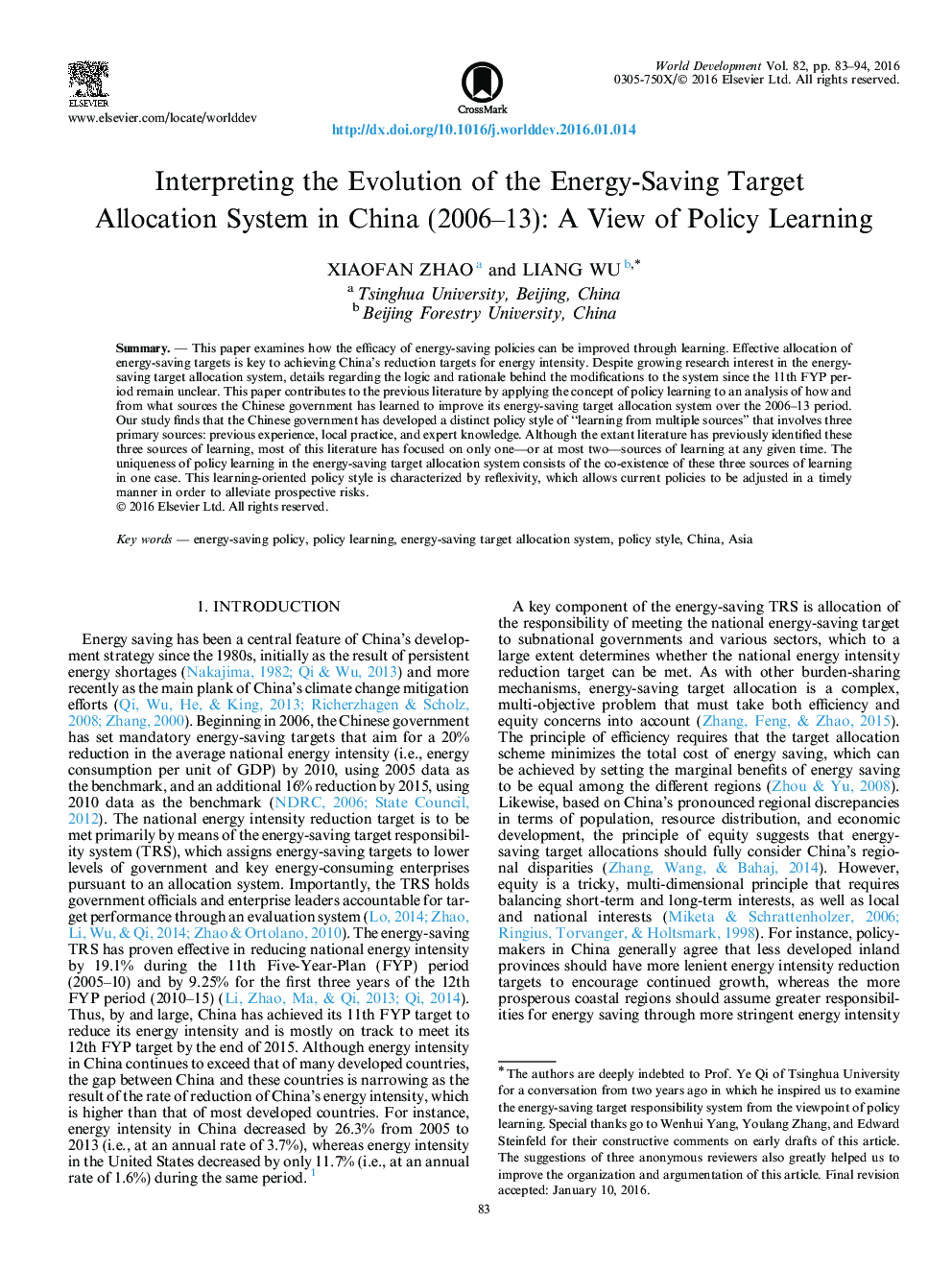| کد مقاله | کد نشریه | سال انتشار | مقاله انگلیسی | نسخه تمام متن |
|---|---|---|---|---|
| 991247 | 1481136 | 2016 | 12 صفحه PDF | دانلود رایگان |
• We examine how the efficacy of energy-saving policies can be improved via learning.
• We review the evolution of the energy-saving target allocation system in China.
• Chinese government has fostered a policy style of “learning from multiple sources”.
• Policymakers learned from previous experience, local practice, and expert knowledge.
• Learning emphasizes reflexivity that allows timely adjustment of current policies.
SummaryThis paper examines how the efficacy of energy-saving policies can be improved through learning. Effective allocation of energy-saving targets is key to achieving China’s reduction targets for energy intensity. Despite growing research interest in the energy-saving target allocation system, details regarding the logic and rationale behind the modifications to the system since the 11th FYP period remain unclear. This paper contributes to the previous literature by applying the concept of policy learning to an analysis of how and from what sources the Chinese government has learned to improve its energy-saving target allocation system over the 2006–13 period. Our study finds that the Chinese government has developed a distinct policy style of “learning from multiple sources” that involves three primary sources: previous experience, local practice, and expert knowledge. Although the extant literature has previously identified these three sources of learning, most of this literature has focused on only one—or at most two—sources of learning at any given time. The uniqueness of policy learning in the energy-saving target allocation system consists of the co-existence of these three sources of learning in one case. This learning-oriented policy style is characterized by reflexivity, which allows current policies to be adjusted in a timely manner in order to alleviate prospective risks.
Journal: World Development - Volume 82, June 2016, Pages 83–94
